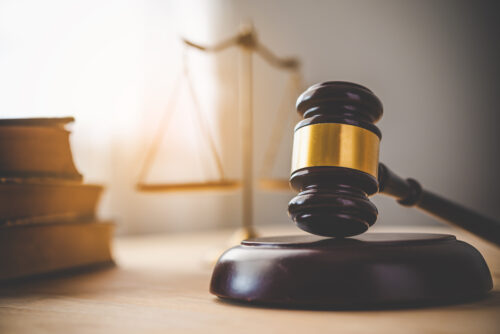
When you are charged with a crime, your case will be presented and heard at a criminal trial in front of a judge and jury. The prosecution will have to prove your guilt beyond a reasonable doubt. If they succeed and your criminal trial has ended in a conviction, you will be subject to an array of different penalties depending on the criminal offense. In some cases, when there has been a significant legal error or injustice during the original trial, you can file a motion for a new trial. Essentially, this will would bring your case back to square one. However, it is important to note that judges rarely grant motions for a new trial. Typically, they are only granted when there has been a serious error or injustice that has prevented you from receiving a fair trial. Keep reading to learn how a motion for a new trial can benefit your criminal case and discover how our skilled Nassau County Criminal Defense Attorneys can help ensure your constitutional rights are not violated.
What are the only grounds for filing a motion for a new trial?
When your criminal trial ends with a conviction, you may be able to receive a new trial under limited circumstances. As mentioned above, a judge will rarely grant a motion for a new trial unless there was a significant error or injustice that prevented you from receiving a fair trial. A judge may grant a new trial if a legal error occurred during the original trial. For instance, if the trial judge wrongly excluded certain evidence from being heard at trial that would have had a significant impact on the outcome of the case, a new trial may be granted as the ruling error could result in an overturned appeal.
Additionally, a judge may grant a motion for a new trial if there is discovery of new evidence. However, this is only the case if the discovery of new evidence meets certain criteria. Firstly, the defense must not have known about this new evidence before or during the original trial. The new evidence also must not have been able to been acquired before or during the original trial. For instance, if the defense could not locate a witness and then the witness is found after the trial has concluded, this warrants a new trial as the witness’s testimony could have a significant impact on the jury’s verdict. Finally, the new evidence must be capable of causing a jury to alter their original verdict. If the above criteria are met, a judge may grant a motion for a new trial based on the new evidence coming to light. Further, a judge may grant a new trial if there was a serious injustice during the original trial. For instance, post-trial if a judge discovers a juror made their decision on the verdict based on discriminatory beliefs rather than the facts presented during the trial, they will likely grant a motion for a new trial as this is not fair to a defendant.
If you believe your constitutional rights have been violated during a criminal trial, please contact one of our determined team members. Our firm can will help you file a motion for a new trial to ensure you receive a fair trial.
